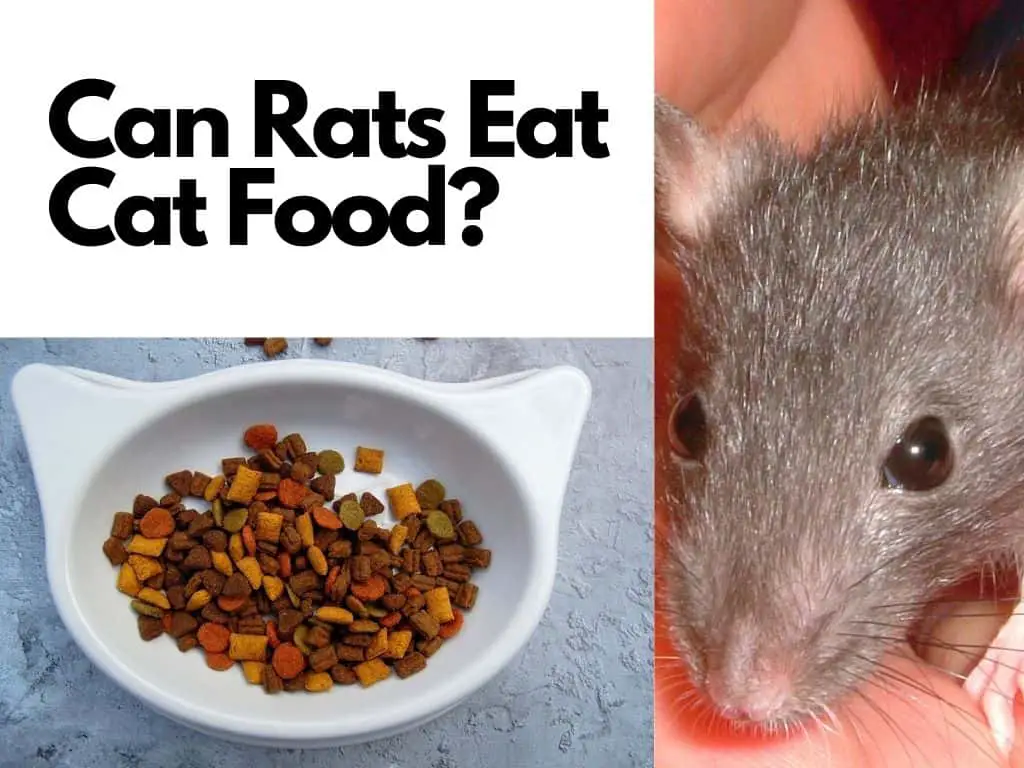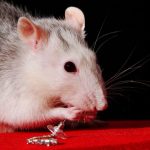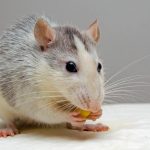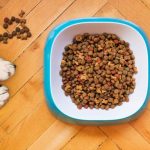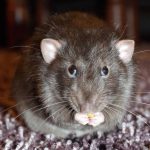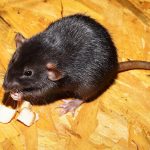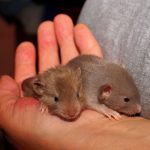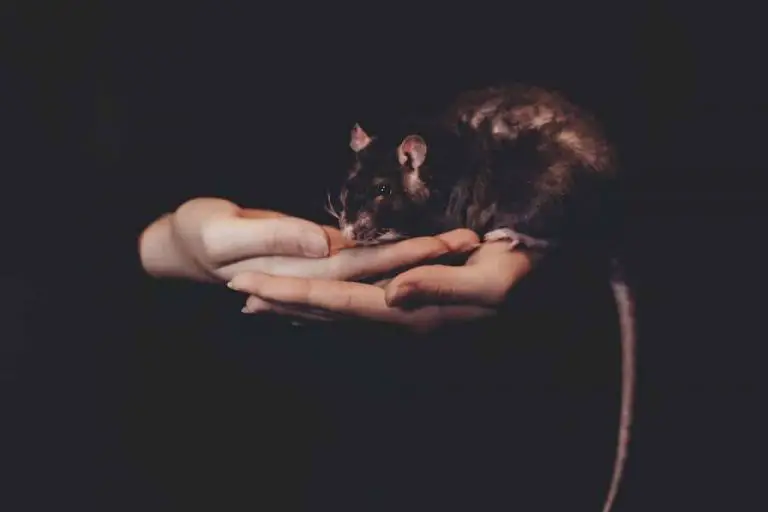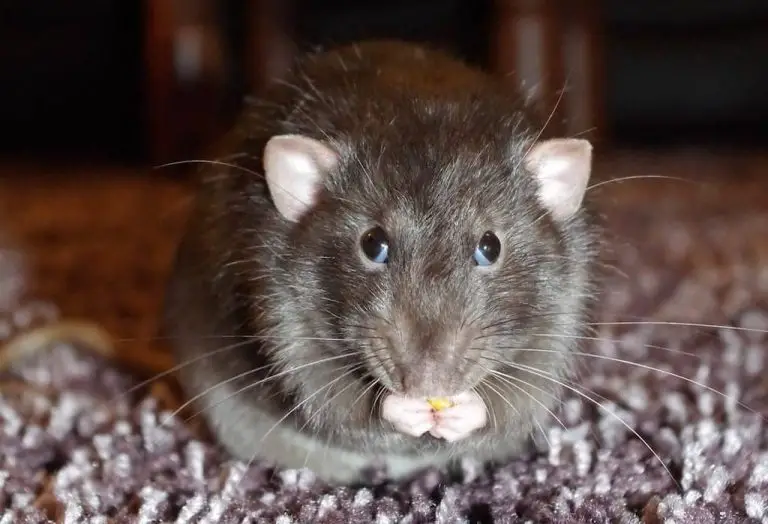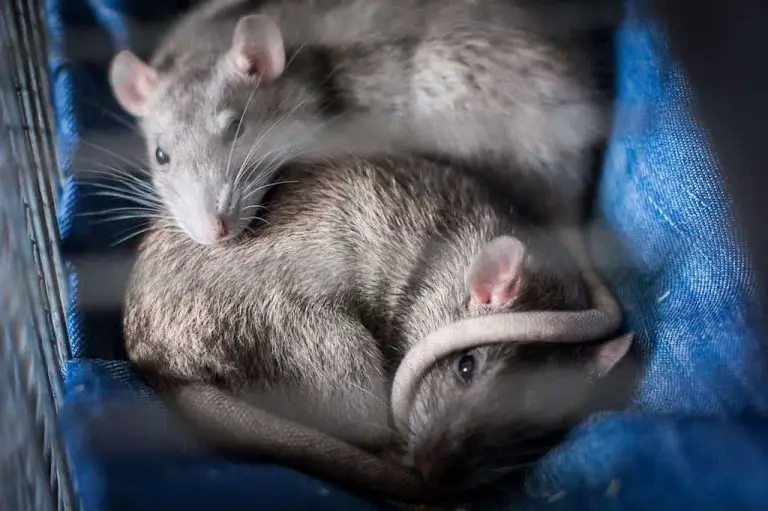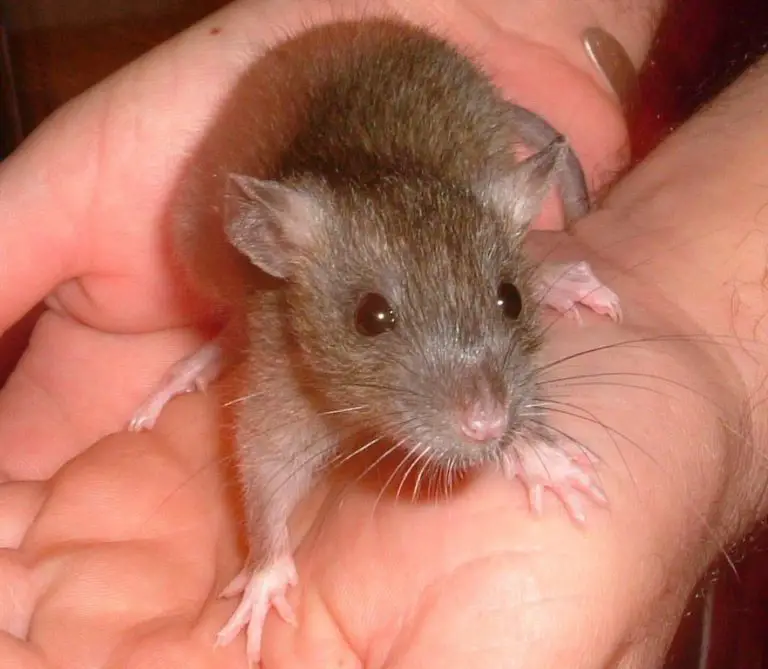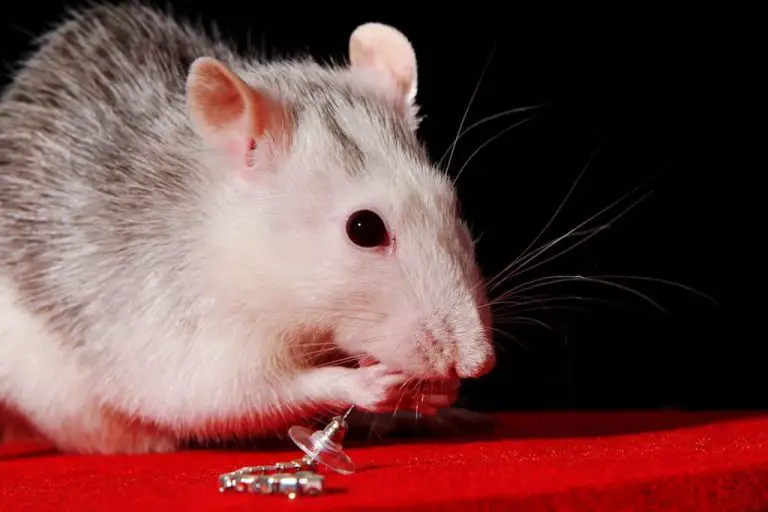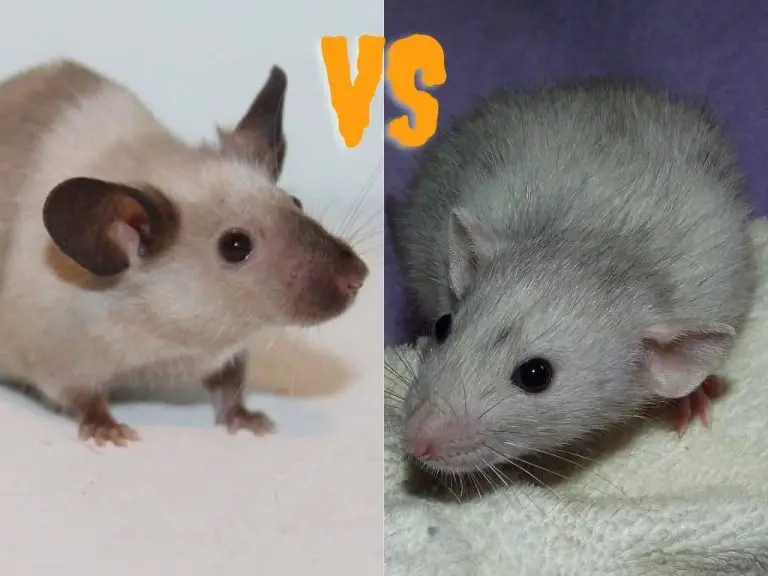Can Rats Eat Cat Food?
Rat owners might think they’re doing a favor for the rat by offering them something similar to what cats eat. Still, there are some essential differences between these two animals’ digestive systems.
Rats should not eat cat food. The rat’s digestive system is different from that of a cat and may cause an upset stomach. Furthermore, there are some specific foods that you should use to balance your rat’s diet properly.
Read on to discover why rats should not eat cat food. Additionally, we will discuss whether or not dog food or human foods are suitable for your rat and what their ideal diets should look like.
Why Can’t Rats Eat Cat Food?
There are some essential differences between rat and cat digestive systems. Rats eat a diet made up of fresh fruit, healthy fats from seeds, or live insects, while cats need to eat meat to get the same nutrients.
Rats cannot digest specific proteins as cats do. This can lead to an upset stomach and trigger other health issues. It is best to avoid feeding rats or any other small rodent with your pet’s food.
Cats also have short intestines, which can quickly process their food before it has time to ferment and go bad with any toxins that may be present. On the other hand, Rats have long intestinal tracts, which can take three days for food (mainly vegetables) to fully digest after being eaten.
If there is too much sugar found in a rat’s bloodstream following a meal, then they will most likely develop diabetes over time. Rats are also known to be susceptible to liver and kidney damage if their diet contains too much protein.
What is the Proper Diet for a Rat?
It is crucial rat owners know what they’re feeding their pet. If a rat’s diet consists of too much protein, it can lead to health problems in the rat, such as liver or kidney failure.
The rat’s natural tendency is to eat a varied diet consisting of:
- Plant-based foods
- Vegetables, grains, and fruit
- Meat sources (like worms)
A healthy rat diet should consist mainly of carbohydrates, proteins, and fats but at appropriate levels for rats. Rats need less than 20% of their food intake from protein sources. Processed dog or cat foods are not suitable for rats because they could make them sick over time due to their high protein content.
What Do I Feed My Rat?
The best course of action would be to use rat-specific food – they are designed for a rat’s particular dietary needs. You can find rat food in pet stores, but it might be more economical to buy rat pellets online since you’ll get much less packaging and shipping costs involved.
Different brands of rat food come with different nutritional profiles and ingredients lists, so do your research before making any purchase!
What Other Food Can My Rat Eat?
Some things rats can eat include:
- Carrots
- Broccoli stems (cooked)
- Kale leaves (cooked)
- Dandelion greens (raw or cooked)
- Applesauce
- Pumpkin puree
Rats should not consume the following foods without cooking them first:
- Raw potatoes
- Raw tomatoes
- All citrus fruits or products made from them (including lemons)
- Marinades that contain garlic or onion.
Be sure to add vegetables and fruits to your rat’s diet, but only raw or occasionally cooked fruits and vegetables. Processed versions of these foods may present some dietary issues for your rat.
Should Rats Eat Human Food?
Unfortunately, wild rats and mice tend to sneak into homes (especially kitchens) to scavenge on leftover crusts or other foods that are out in the open.
Rats can eat some small amounts of human food, but it shouldn’t be any more than a small scrap, if at all! This can lead to vitamin deficiencies among rats who don’t get enough nourishment from their normal diet because rat-specific vitamins won’t be present in those leftovers.
Rats and mice are not immune to the dangers associated with pesticides or other chemicals that may have been used on some human foods. For this reason, make sure the only thing your rat is scavenging has gone through proper preparation before giving them anything that might not offer nutritional benefits!
How Do I Keep My Rat Away from Cat Food?
If you’re concerned about your rat eating cat food when given the opportunity- try locking them in a room with no access to the dry kibble. You can also purchase rodent blocks at most pet stores that will provide all their nutritional needs without any danger of upsetting their system!
Methods to keep your rat out of your cat’s food include:
- Putting rat food in a rat feeder away from your cat’s dish.
- Keeping the rat’s cage off of surfaces, they can jump or climb to reach high places where your cat spends his time, like the couch.
- The best way to keep rats out of your dry kibble is by switching them over to wet and mostly live foods as soon as possible!
Rats need things like small insects and fresh vegetables & fruits. They will not eat much, if any, when you first introduce it to their diet but gradually, they should start eating more than their dried food until there isn’t enough in one day for them, so just supplement with some extra pieces daily.
Can Rats Eat Dog Food?
Rats will eat cat food if they are on the prowl for food, but rat owners who keep their rats in a cage should be aware that rats can’t tolerate high protein levels like cats and dogs.
Dog foods, like cat foods, are not suitable for rats. They need lower protein levels than cats or dogs to stay healthy, which means pet rat owners have to purchase specially designated rat foods.
Conclusion
Rats are fascinating animals to have as pets. They come in all shapes and sizes, colors, and personalities which is why we love them so much! However, you must know what types of food they do best for their diets.

